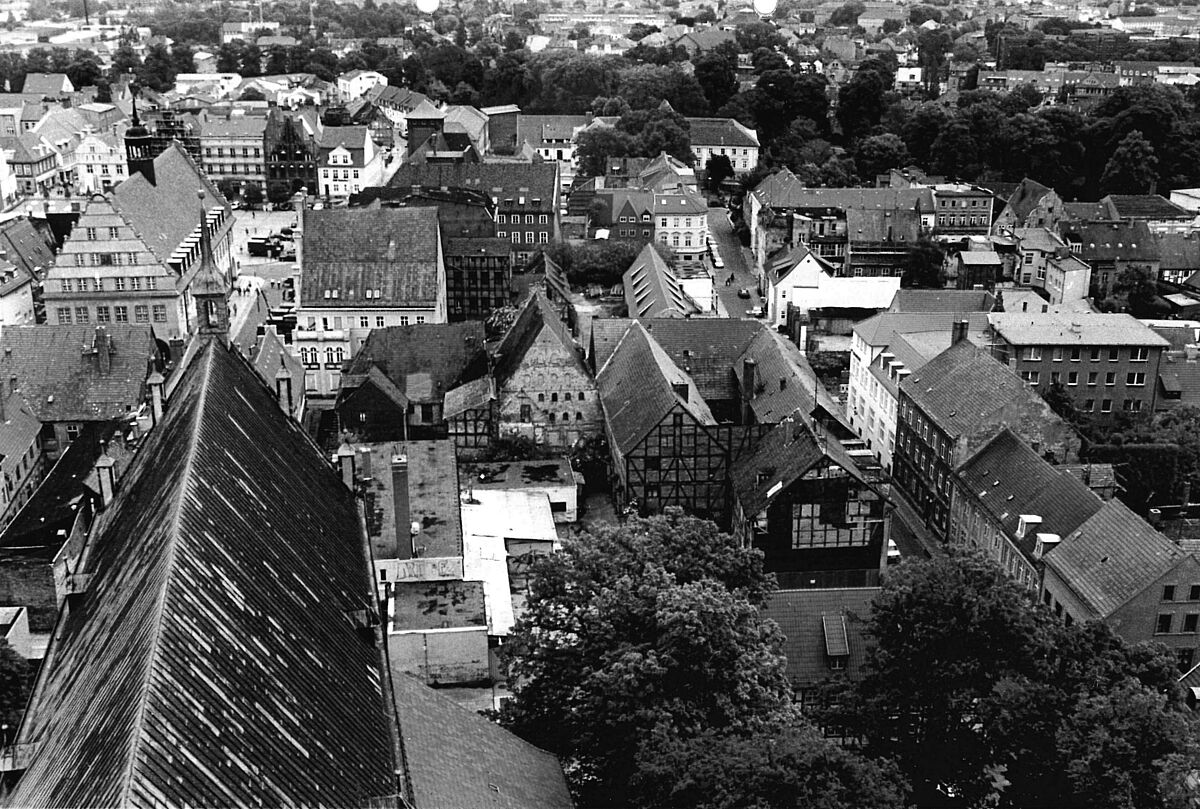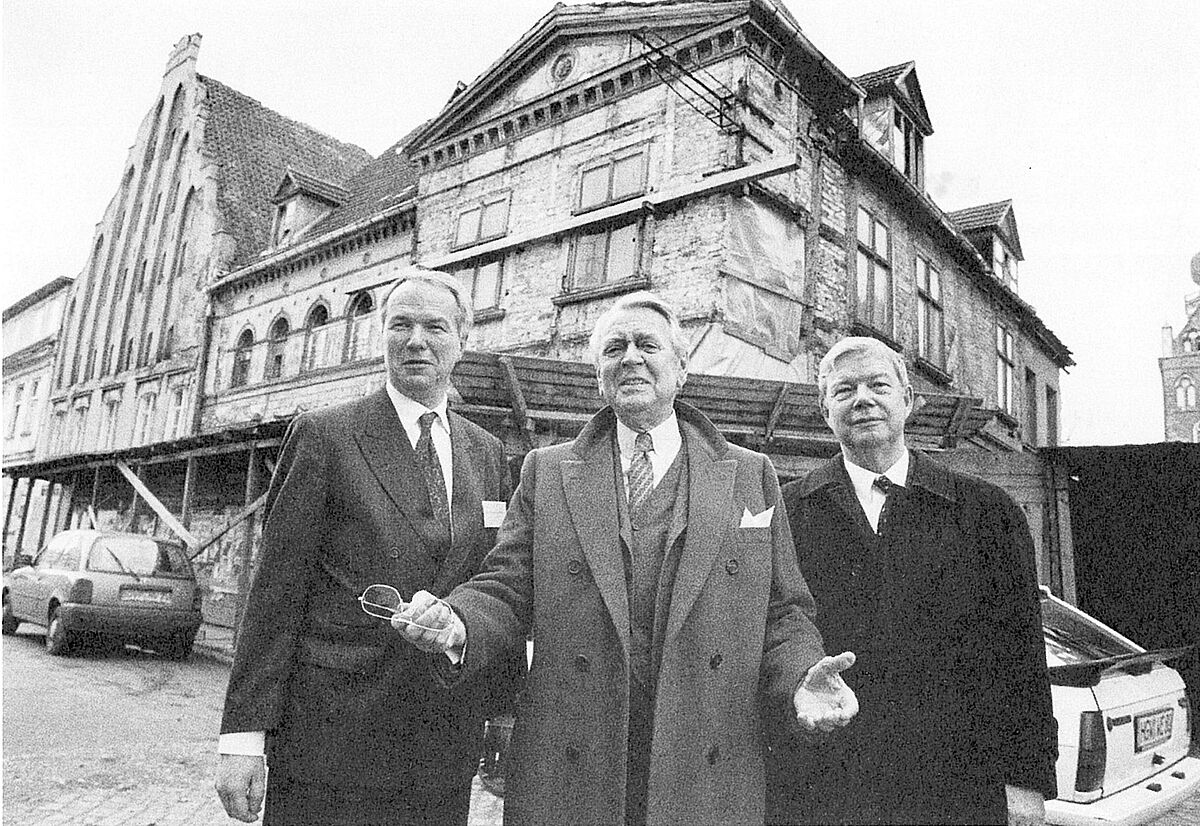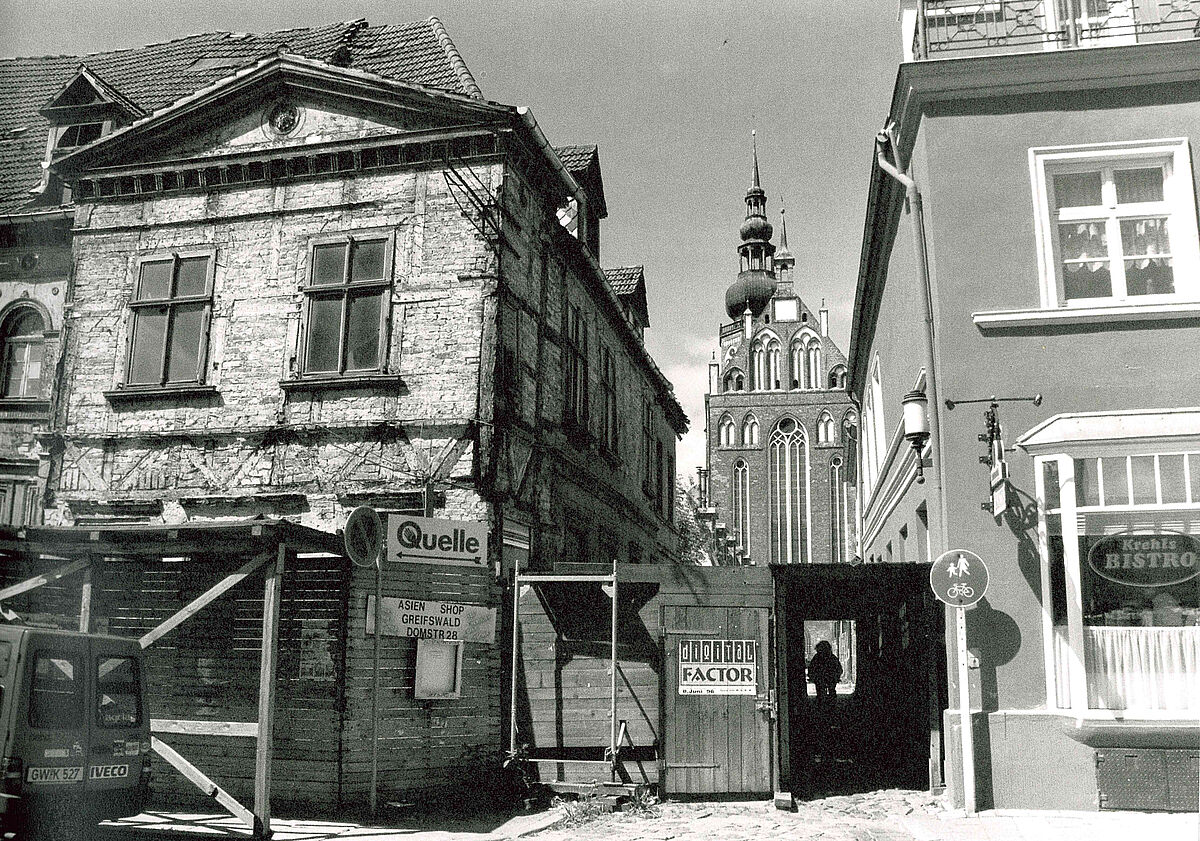About the founding story
At the end of the GDR era in the winter semester of 1989/1990, the University of Greifswald had an enrolment figure of 3,542 students - by the standards of the time, a figure that was below the minimum acceptable size for a university. There were intense discussions about closing the University of Greifswald and concentrating all university resources at the University of Rostock.
In this precarious situation, the Board of Trustees of the Alfried Krupp von Bohlen und Halbach Foundation decided to step up its efforts to ensure the continued existence of the University of Greifswald. Following aid measures for the university hospitals and direct support for the Faculty of Medicine, the Krupp Foundation supported institutions that were affiliated with the University Hospital of Greifswald or worked closely with it, such as the inpatient hospice or the Neurological Rehabilitation Center in Greifswald.
From 1995, the Krupp Foundation developed the idea of constructing a building in the center of the city of Greifswald that would serve the university as a whole and help to secure and strengthen its tradition-steeped existence. In 1995, these visions were put into concrete terms by aiming to create an independent institution closely linked to the university to promote scientific excellence. Between 1995 and 2000, the Krupp Foundation acquired several plots of land near St. Nikolai Cathedral in order to provide a generous structural solution. The "Alte Apotheke", the oldest half-timbered house in Mecklenburg-Vorpommern dating back to the 15th century, is also integrated into the project.
In 1997, the Krupp Foundation, together with the university and the state government of Mecklenburg-Vorpommern, specified the objectives of the project: the planned Centre for Scientific Communication was to work on an interdisciplinary basis, serve as a center for scientific exchange, support young researchers at the university and attract researchers from Germany and abroad to Greifswald. As a venue for public events, it is intended to make a contribution to the cultural and intellectual life of the city and the region. The foundation stone was laid in 2000 following a restricted architectural competition, in which the office of Michael Gaenssler from Munich emerged as the winner. At the same time, the Krupp Foundation, together with the state of Mecklenburg-Vorpommern and the University of Greifswald, established a new foundation to support the Wissenschaftskolleg: the Alfried Krupp Kolleg Greifswald Foundation.
As a foundation under civil law, it contributes to the promotion of science and research at the University of Greifswald, in particular through the operation of the Alfried Krupp Wissenschaftskolleg Greifswald. The foundation is independent and enables academic work of a consistently high quality. This independence was the central concern of Professor Dr. h.c. mult. Berthold Beitz, the then Chairman of the Board of Trustees of the Alfried Krupp von Bohlen und Halbach Foundation, associated with his initiative to establish the Alfried Krupp Kolleg Greifswald Foundation.
The Alfried Krupp von Bohlen und Halbach Foundation contributed a substantial part of the foundation capital in the form of land and buildings and their furnishings worth € 15.3 million. The financial capital of € 4.1 million comes in equal parts from the state of Mecklenburg-Vorpommern and the University of Greifswald. In addition, there are annual grants from all donors and permanently secured personnel funds from the University of Greifswald. The Alfried Krupp Wissenschaftskolleg Greifswald commences its work on December 3, 2002.



